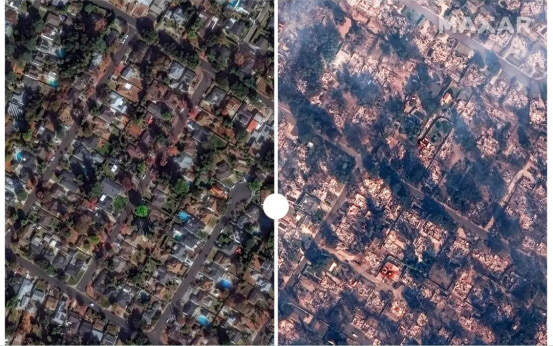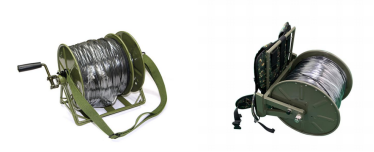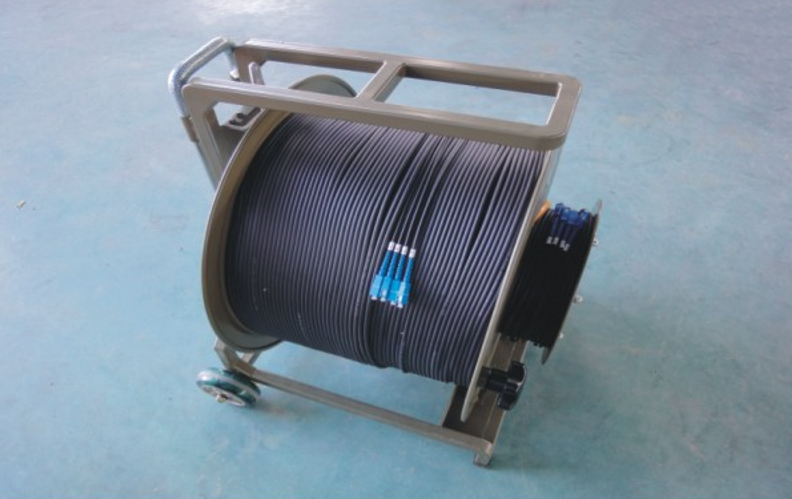As of January 9, 2025, the Los Angeles area in California is embroiled in devastating wildfires that have caused the loss of life, destruction of property, and the evacuation of large numbers of people. The wildfires have affected the power, transport and communication systems hence leaving more than 420,000 households without electricity. In response, Space X has announced that Starlink terminals would be made available for free to the affected areas for evacuees and emergency responders. However, satellite internet services such as Starlink are not without their limitations. This situation highlights the importance of other communication technologies like Tactical Fiber Optic Trunk Cables in disaster response.

The Role of Tactical Fiber Optic Trunk Cables in Disaster Response
Tactical fiber optic trunk cables are designed to provide a reliable, high-speed connection in challenging environments. They are not your traditional cables since they are produced for quick deployment and are very durable and thus very useful in emergency situations such as wildfires.
Advantages of Tactical Fiber Optic Trunk Cables
1.Rapid Deployment
Emergency response teams can set up communication networks quickly with the help of tactical is fiber because optic they cables, have which a are plug designed and for play fast system and that easy does deployment. not This require a lot of setup and so the teams can focus on the rescue and relief operations.
2.Durability and Reliability
Tactical fiber optic cables are constructed from rugged materials and can operate in extreme conditions of temperature, physical damage, water or debris. These features ensure that the connection is always active even in the worst of the wildfires.
3.High Bandwidth
These cables are able to support a high speed data transfer and so they are perfect for use in video surveillance, data transfer and coordination of several teams in case of disaster management.
4.Resilience Against Environmental Interference
This paper also seeks to compare and contrast Starlink with tactical fiber optic cables in terms of their resistance to environmental factors such as smoke, ash and weather. In this case, the fiber optic cables are more efficient because they work independently of the weather or the state of the environment.

Case Study: Tactical Fiber Optic Solutions in Action
In the past, people have used tactical fiber optic cables to restore communication systems after disasters such as wildfire, hurricanes and earthquakes. For instance, in the areas that were affected by the disasters mentioned, a author used these cables to connect emergency operations centers, field hospitals and shelters in order to ensure that the response teams communicate freely.
The current Los Angeles wildfire crisis has again shown the need for such technology. When power lines are down and when satellite signals may be blocked by smoke, then tactical fiber optic cables can serve as a good alternative for maintaining communication connections in the affected regions.
Comparing Starlink and Tactical Fiber Optic Trunk Cables
Feature |
Starlink Satellite Internet |
Tactical Fiber Optic Trunk Cables |
Deployment Speed |
Rapid but requires clear skies |
Rapid and effective in all terrains |
Weather Resistance |
Affected by smoke and ash |
Resistant to environmental interference
|
Durability |
Vulnerable to environmental damage |
Highly durable and impact-resistant |
Bandwidth |
High, but can fluctuate under obstructions |
Consistently high and reliable
|
Ideal Usage Scenario |
Remote areas with no infrastructure |
Emergency setups needing stable networks
|
The Need for a Comprehensive Approach
Starlink is a great solution for emergency internet needs in remote and disaster areas, but it has its limitations that should not be overlooked. This is where tactical fiber optic trunk cables come in - these cables offer a more reliable and durable form of communication when satellite signals may be weak. Therefore, in the context of the present disaster management, the use of the two technologies could really make a difference in enhancing the connectivity and effectiveness of the response efforts.
Conclusion
This paper has explained how the current wildfires in Los Angeles have shown us how vital communication is in disaster management. Though satellite internet services such as Starlink offer a quick connection, tactical fiber optic trunk cables provide a more sustainable and robust solution. Thus, with the aid of these technologies, response teams can ensure that communication flows freely, both efficiently and effectively, during the disaster management process. Therefore, investing in tactical fiber optic solutions is not only a reaction to the current challenges but also a preparation for the future.

